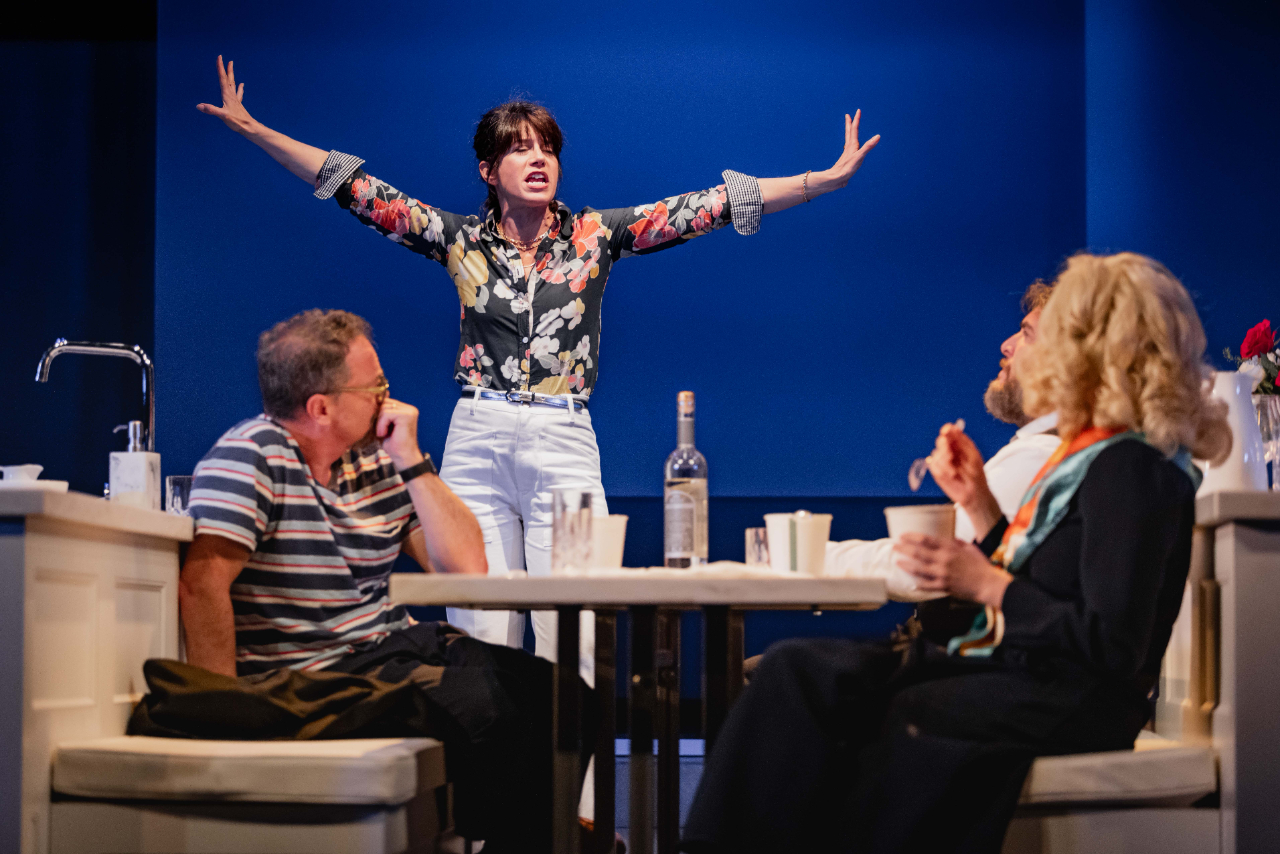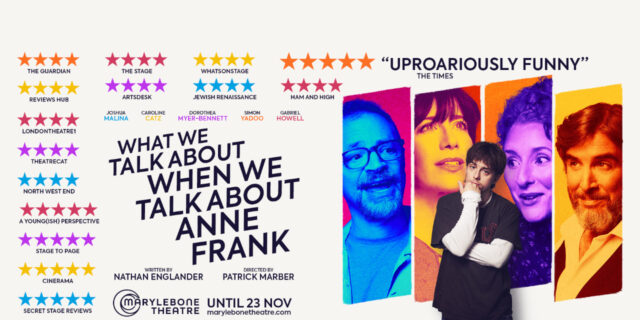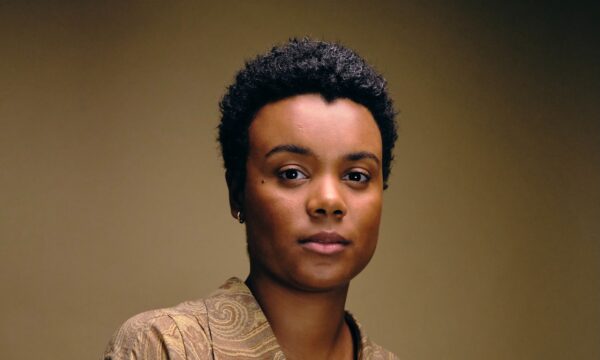What We Talk About When We Talk About Anne Frank at Marylebone Theatre

Explosive and evocative, Nathan Englander’s What We Talk About When We Talk About Anne Frank is a theatrical marvel that pushes forth difficult topics – of politics, religion, identity and generational divides – and finds something intricate and nuanced within the chaos of it all. That in itself is a very rare feat in the context of today’s society, which is obsessed with an “us versus them” mentality. What may seem to be a long night of debate and hard conversations turns out to be a fun and eclectic time with a group of people who are just as lost as each other, trying to find common ground and learning to co-exist despite their stark differences.
Based on his initial short story written almost ten years ago, What We Talk About When We Talk About Anne Frank follows two Jewish women, formerly best friends, reuniting after decades of not seeing each other. One is ultra-Orthodox who now lives in Israel with her husband, the other is ultra-secular living in Florida alongside her husband and son. The premise of the short story is based on the concept of having a conversation in one place as the light of day passes by. This foundation is already perfect for a stage setting, which makes the transition from novel to script quite fluid. It also helps that Englander’s writing is sharp and witty, and yet there’s something very giving and delicate about it. He lays out all the important information for debate on both sides without making the audience feel patronised or as if information is just being dumped on them.
There are plenty of issues being discussed throughout the play – from the Holocaust, the Israeli-Palestinian conflict, traditional Jewish values and the ongoing climate crisis. No one solution is found, but that is the beauty of the play. It showcases how much the yelling and the lack of actual listening and understanding from both sides is a dead end in finding solutions. The actors are all charismatic and passionate in their line delivery that even though some of the information is heavy and dark, one can’t help but be entranced by their performance. Whether the audience finds themselves agreeing or disagreeing with the arguments presented, they will leave the theatre feeling something for the characters. This is especially true for Caroline Catz and Dorothea Myer-Bennett and their chemistry as their characters’ friendship is the driving force of the entire night.
Beyond discussions of politics, religion, and all these very divisive points of conversation, there’s a very human story underneath. It’s about decades of friendship and finding a way to move forward despite the differences in belief and practice; it’s about family, what it means to be a parent; it’s about a group of people trying to find connection among insurmountable disagreements. The single-set structure of the play does a good job of highlighting the suffocation these characters feel. It’s this idea of forcing these people into one room together, the audience bearing witness as they go through that journey. Even though the subjects are weighty, there’s room to breathe and laugh, and space to grow. The last sequence of the play with the dance number in the end is energetic and uplifting, tying the entire performance together.
What We Talk About When We Talk About Anne Frank is an important piece of theatre that’s very current and relevant, yet timeless in its search for hope and the good in everyone.
Mae Trumata
Photos: Mark Senior
What We Talk About When We Talk About Anne Frank is at Marylebone Theatre from 4th October until 23rd November 2024. For further information or to book visit the theatre’s website here.


























Facebook
Twitter
Instagram
YouTube
RSS